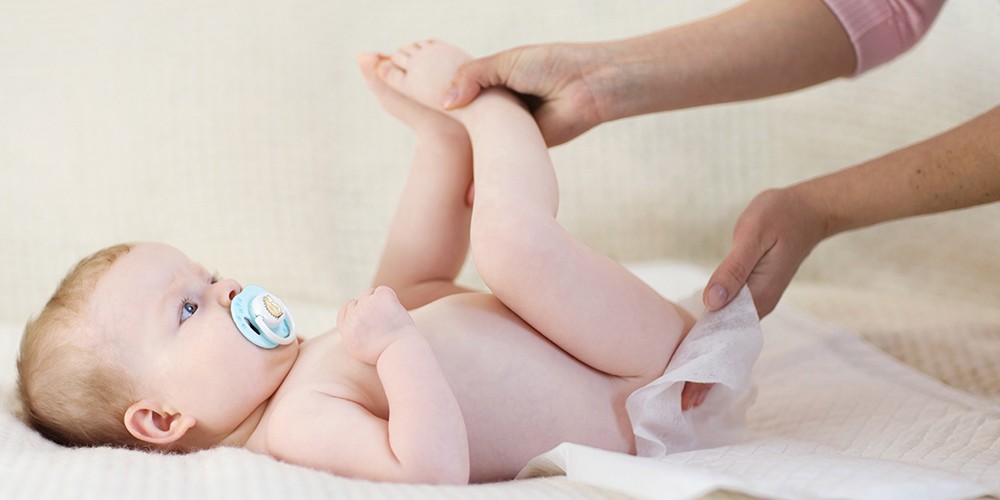
Switching your baby to solid foods is an exciting milestone in the baby’s development. Normally, solid food is introduced when the baby is 6 months old. It can sometimes be messy or fun and it definitely gets frustrating for both the baby and the mother at times. Getting used to the new solid foods can be tough on the baby. Many infants suffer from constipation in that phase.
Now, here is an important point to consider. Such constipation is not the same as constipation in adults. Digesting food in the initial days can be challenging for the baby as the baby’s digestive system is customary to the formula of his mama’s breast milk. By this point, the baby’s body has matured and developed and can allow him to eat solids. But, the challenge is that digesting more complex foods, absorbing nutrients, the processes of digesting solids are new and not always easy for babies. It takes longer to digest solids and can often leave the baby constipated.
Table of Contents
Why does the baby get Constipated?
Adding solids to the baby’s diet can leave him constipated. This mainly happens because many of those “first foods” do not have enough fiber in them. This can cause the baby a little “backed up”.
Solid foods such as bananas, applesauce, or low fiber cereals can persuade constipation in babies. Cheese, yogurts or other dairy-based solids are also heavy on the system and are more difficult for the baby to digest. Foods that are difficult to digest can lead to constipation.
Also Read: How Dangerous are Processed Foods?
Care for a Constipated Baby
Start Off Low
One of the best remedies for a baby’s constipation is to eliminate the traditional starter diet and choose what is right for your baby. Start by introducing just one type of solid food every second or every third day. The benefit of this is that when you introduce just one type of food, you will know how the baby is taking it. Once you have a clear vision on that, you can make notes on what triggers constipation in your baby and just strike off those things for the baby.
It’s okay to skip the ABC Diet
Foods like applesauce, bananas, and cereals can cause constipation in babies. Instead, choose fruits or vegetables with high-fiber in them to help loosen the stool. Fiber-rich food items such as cereals or fruits like prunes, peaches, or pears can help the stool pass through the intestines quicker.
Prune, apple, or pear juice can prevent constipation and help soften the stools and make it easier to pass out. These food items are helpful in giving minor constipation relief.
Give the baby some Massage Time
Sometimes the baby’s bowels need stimulation with a little help. Massaging your baby’s belly in a light clockwise, circular motions around the belly button can encourage the baby’s digestive system to get in action again. The massage is relaxing and also helps to give the baby relief by reducing the discomfort from constipation. A massage can also relax the muscles which stimulate the digestive tract.
A warm bath would really help!
A warm bath can also give a similar effect by relaxing and relieving a constipated baby. The warm water loosens up the muscles, soothes the body and reduces the abdominal pressure and discomfort.
Work it out with Bicycle Kicks
Exercise can be really helpful for regular bowel movements. It helps the food move through the GastroIntestinal Tract faster. Moving the legs in a bicycle movement (both clockwise and anti-clockwise) can help stimulate muscle contractions in the intestines. With exercise or movements, the muscles contract more efficiently. Gentle movements can keep things moving throughout the system and promote regular bowel movements. And it is even very simple to do. Just lay your baby on the back on a bed or a soft surface and move the baby’s legs in a rotational motion, just like the legs move while riding a bicycle.
Probiotics can rescue
Probiotics have an enormous list of health benefits. They can be a long-term solution for constipation in your baby. Probiotics can accelerate the baby’s digestive system. You can simply add curd or consult your doctor for other options suitable for the baby.
Also Read: Things Your Grandmother Use to Say About Your Health







